From classic novels to recent releases, writers and critics tell the Observer which books they'll be cramming into their suitcases this summer
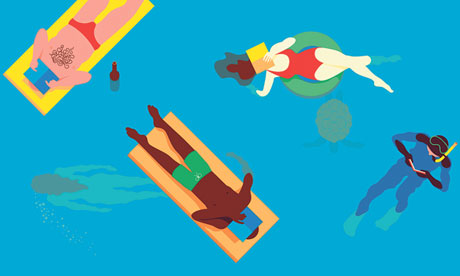
Illustration by Harry Haysom.
Louise Doughty
Novelist
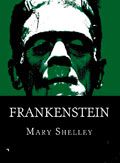 Well-written reportage or memoir is my relaxation reading. I loved Janet Malcolm's last book, Iphigenia in Forest Hills, and so will be falling upon her new one, Forty-One False Starts, a collection of essays and profiles, if only for the great title. While we are on numbered titles, I might catch up with Elif Shafak's The Forty Rules of Love; with recent events in Turkey, her work has become more important than ever. Each summer, I try to read something I'm ashamed to have not read and this summer it's going to be (big admission here) Mary Shelley's Frankenstein.
Well-written reportage or memoir is my relaxation reading. I loved Janet Malcolm's last book, Iphigenia in Forest Hills, and so will be falling upon her new one, Forty-One False Starts, a collection of essays and profiles, if only for the great title. While we are on numbered titles, I might catch up with Elif Shafak's The Forty Rules of Love; with recent events in Turkey, her work has become more important than ever. Each summer, I try to read something I'm ashamed to have not read and this summer it's going to be (big admission here) Mary Shelley's Frankenstein.
Julian Barnes
Novelist
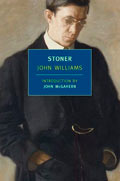 For the flight (and for a reminder that the activity was once much more dangerous) I shall take Richard Holmes's history of ballooning and balloonatics, Falling Upwards. As every five years or so, it's time to reread The Great Gatsby (which also contains a theme of upward mobility); but for once it can be followed by the chaser of Sarah Churchwell's Careless People, a kind of biography of that perfect novel. John Williams's Stoner is not about drugs – or written by the guitarist – but by a forgotten American; first published in 1965, it is one of those purely sad, sadly pure novels that deserves to be rediscovered.
For the flight (and for a reminder that the activity was once much more dangerous) I shall take Richard Holmes's history of ballooning and balloonatics, Falling Upwards. As every five years or so, it's time to reread The Great Gatsby (which also contains a theme of upward mobility); but for once it can be followed by the chaser of Sarah Churchwell's Careless People, a kind of biography of that perfect novel. John Williams's Stoner is not about drugs – or written by the guitarist – but by a forgotten American; first published in 1965, it is one of those purely sad, sadly pure novels that deserves to be rediscovered.
Hilary Mantel
Novelist
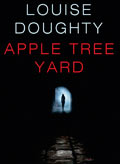 Since I holiday at home and don't have to pay excess baggage, I look forward to Modernity Britain, the latest in David Kynaston's series of postwar histories: these are volumes full of treasure, serious history with a human face. I can recommend Louise Doughty's new thriller, Apple Tree Yard: guaranteed to have you on the edge of your sun-lounger. And this may be the season I finally enjoy Richard Ford's modern classic The Sportswriter, which has sat on my shelves for many summers.
Since I holiday at home and don't have to pay excess baggage, I look forward to Modernity Britain, the latest in David Kynaston's series of postwar histories: these are volumes full of treasure, serious history with a human face. I can recommend Louise Doughty's new thriller, Apple Tree Yard: guaranteed to have you on the edge of your sun-lounger. And this may be the season I finally enjoy Richard Ford's modern classic The Sportswriter, which has sat on my shelves for many summers.
John Lanchester
Novelist
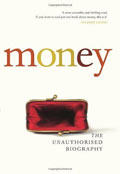 Two brilliant books by young writers that I've looked at and am looking forward to reading properly are Money by Felix Martin and Idiopathy by Sam Byers. They're respectively a fascinating new way of telling the story of what money is and a mordantly riveting first novel about what it's like to be a thirtysomething. Joe Brainard's I Remember is republished in a beautiful new form by Notting Hill Editions. Every section in it starts with the words "I remember": it was the inspiration for two of my favourite pieces of autobiographical writing, Georges Perec's Je me souviens and Harry Mathews's The Orchard. It's a quarter of a century since I read Proust so I'm going to tackle him again, starting with the translation of Swann's Way by one of my favourite writers, Lydia Davis.
Two brilliant books by young writers that I've looked at and am looking forward to reading properly are Money by Felix Martin and Idiopathy by Sam Byers. They're respectively a fascinating new way of telling the story of what money is and a mordantly riveting first novel about what it's like to be a thirtysomething. Joe Brainard's I Remember is republished in a beautiful new form by Notting Hill Editions. Every section in it starts with the words "I remember": it was the inspiration for two of my favourite pieces of autobiographical writing, Georges Perec's Je me souviens and Harry Mathews's The Orchard. It's a quarter of a century since I read Proust so I'm going to tackle him again, starting with the translation of Swann's Way by one of my favourite writers, Lydia Davis.
Helen Dunmore
Poet
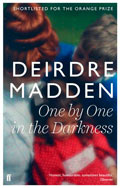 The recent publication of Deirdre Madden's Time Present and Time Past sent me back to her earlier novels. One By One in the Darkness is one of the finest books I know about growing up in Northern Ireland during the Troubles. A country child's confident world is eaten away while the all-powerful adults are revealed as vulnerable, fearful, even desperate. This is history from within and it grips the heart. I'm a rereader as much as a reader, and the classic that I would take with me is Colette's Le blé en herbe. This coming-of-age love triangle between a boy, a girl and an older woman is the essence of summer: tender, sensuous, poignant and without illusions.
The recent publication of Deirdre Madden's Time Present and Time Past sent me back to her earlier novels. One By One in the Darkness is one of the finest books I know about growing up in Northern Ireland during the Troubles. A country child's confident world is eaten away while the all-powerful adults are revealed as vulnerable, fearful, even desperate. This is history from within and it grips the heart. I'm a rereader as much as a reader, and the classic that I would take with me is Colette's Le blé en herbe. This coming-of-age love triangle between a boy, a girl and an older woman is the essence of summer: tender, sensuous, poignant and without illusions.
Robert Macfarlane
Travel writer
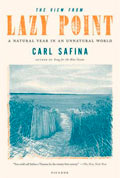 I'm chairing this year's Man Booker prize jury, and we've been on a novel a day for the past 100 days, and a novel every two days for the 100 before that. So fiction will certainly not be featuring as part of my summer reading (in fact, now I think about it, reading might not be featuring as part of my summer). But among the not-novels I've been looking forward to having time to turn to, once the bulk of the Booker is done – we longlist in late July – are Tim Dee's forthcoming Four Fields, about grass, sunshine, life and the pastoral, and The View from Lazy Point by Carl Safina, the story of "a natural year in an unnatural world", written by an oceanographer who has been acclaimed in the US as Rachel Carson's successor. Both books, I anticipate, will relate dazzling close observation to the larger politics of the environment. Oh, and as part of the research for a book called Underland that I'm slowly writing, about subterranea and the worlds beneath our feet, I'll also be reading Eyal Weizman's now-classic study Hollow Land: Israel's Architecture of Occupation (Verso).
I'm chairing this year's Man Booker prize jury, and we've been on a novel a day for the past 100 days, and a novel every two days for the 100 before that. So fiction will certainly not be featuring as part of my summer reading (in fact, now I think about it, reading might not be featuring as part of my summer). But among the not-novels I've been looking forward to having time to turn to, once the bulk of the Booker is done – we longlist in late July – are Tim Dee's forthcoming Four Fields, about grass, sunshine, life and the pastoral, and The View from Lazy Point by Carl Safina, the story of "a natural year in an unnatural world", written by an oceanographer who has been acclaimed in the US as Rachel Carson's successor. Both books, I anticipate, will relate dazzling close observation to the larger politics of the environment. Oh, and as part of the research for a book called Underland that I'm slowly writing, about subterranea and the worlds beneath our feet, I'll also be reading Eyal Weizman's now-classic study Hollow Land: Israel's Architecture of Occupation (Verso).
Stuart Evers
Writer
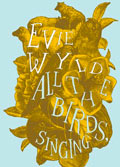 Both Evie Wyld's new novel, All the Birds, Singing, and James Scudamore's Wreaking have remote, rain-riven places at their heart – perfect, then, for any kind of squall or heatwave. I'll also be taking the first of the Carrigan and Miller novels, A Dark Redemption, by the UK's most important, underrated crime novelist, Stav Sherez, as well as the much vaunted web thriller Kiss Me First by Lottie Moggach. The Walk by Robert Walser is my "classic author I've never read" inclusion for the year, accompanied by Jane Jacob's The Death and Life of Great American Cities as my non-fiction choice.
Both Evie Wyld's new novel, All the Birds, Singing, and James Scudamore's Wreaking have remote, rain-riven places at their heart – perfect, then, for any kind of squall or heatwave. I'll also be taking the first of the Carrigan and Miller novels, A Dark Redemption, by the UK's most important, underrated crime novelist, Stav Sherez, as well as the much vaunted web thriller Kiss Me First by Lottie Moggach. The Walk by Robert Walser is my "classic author I've never read" inclusion for the year, accompanied by Jane Jacob's The Death and Life of Great American Cities as my non-fiction choice.
Alexander McCall Smith
Novelist
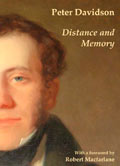 Peter Davidson, an art historian, has written a remarkable and unusual book, Distance and Memory, which is a collection of essays about place and the effect of place. I have started this book but want to make it last the summer. It is a sustained prose poem, very moving in its effect. As for novels, I shall be reading James Robertson's Professor of Truth, a controversial fictionalisation of the Lockerbie issue that has haunted the Scottish legal system for some time. Robertson is a very great novelist. And then there is Rosemary Goring's After Flodden, another real treat.
Peter Davidson, an art historian, has written a remarkable and unusual book, Distance and Memory, which is a collection of essays about place and the effect of place. I have started this book but want to make it last the summer. It is a sustained prose poem, very moving in its effect. As for novels, I shall be reading James Robertson's Professor of Truth, a controversial fictionalisation of the Lockerbie issue that has haunted the Scottish legal system for some time. Robertson is a very great novelist. And then there is Rosemary Goring's After Flodden, another real treat.
Ali Smith
Novelist
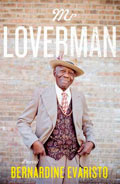 I'm looking forward to Bernardine Evaristo's new novel, Mr Loverman, out in August. It's the story of Barry, Antiguan-born Hackney local hero/antihero, who, it turns out, has been living a secret gay life (especially secret from his wife and kids) for decades. I'm a fan of Evaristo, who can take any old trail and make it blaze. This novel looks full of explosive life and mischief. I'm also reading all I can find of the 20th-century Italian writer Giorgio Bassani. Bassani was Jewish; he survived imprisonment and escaped the fate of so many of his fellow Jewish Ferrarese inhabitants. He spent the postwar decades using fiction to work at the knots of politics, passion and betrayal that formed the psyche of the town he knew inside out. I recently reread his novels, The Garden of the Finzi-Continis and The Gold-Rimmed Spectacles, in powerful new translations by the poet Jamie McKendrick; these sent me back to his other books published in the 1960s and 70s, which I'll read in the knowledge and the pleasurable hope that at some point there'll surely be McKendrick versions of these too. Bassani began as a poet, and McKendrick's redelivery of this taut uncompromising fiction reveals resonance and generosity.
I'm looking forward to Bernardine Evaristo's new novel, Mr Loverman, out in August. It's the story of Barry, Antiguan-born Hackney local hero/antihero, who, it turns out, has been living a secret gay life (especially secret from his wife and kids) for decades. I'm a fan of Evaristo, who can take any old trail and make it blaze. This novel looks full of explosive life and mischief. I'm also reading all I can find of the 20th-century Italian writer Giorgio Bassani. Bassani was Jewish; he survived imprisonment and escaped the fate of so many of his fellow Jewish Ferrarese inhabitants. He spent the postwar decades using fiction to work at the knots of politics, passion and betrayal that formed the psyche of the town he knew inside out. I recently reread his novels, The Garden of the Finzi-Continis and The Gold-Rimmed Spectacles, in powerful new translations by the poet Jamie McKendrick; these sent me back to his other books published in the 1960s and 70s, which I'll read in the knowledge and the pleasurable hope that at some point there'll surely be McKendrick versions of these too. Bassani began as a poet, and McKendrick's redelivery of this taut uncompromising fiction reveals resonance and generosity.
Justin Cartwright
Novelist
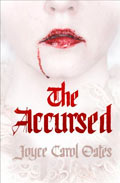 The Accursed by the prolific Joyce Carol Oates is apparently a gothic novel but turns out, I am told, to be a subtle novel about fiction. WG Sebald is a great hero of mine; his work is utterly beguiling, and I can't wait to read the latest, A Place in the Country, a collection of his essays. As for Animal Farm, I have never really wanted to read it after reading Down and Out in Paris and London, and wondering how bad that could have been with a trust fund to call on. But I am aware that Animal Farm has pierced the consciousness of the world to a very deep level, so this summer I am going to read it. And I do like pigs.
The Accursed by the prolific Joyce Carol Oates is apparently a gothic novel but turns out, I am told, to be a subtle novel about fiction. WG Sebald is a great hero of mine; his work is utterly beguiling, and I can't wait to read the latest, A Place in the Country, a collection of his essays. As for Animal Farm, I have never really wanted to read it after reading Down and Out in Paris and London, and wondering how bad that could have been with a trust fund to call on. But I am aware that Animal Farm has pierced the consciousness of the world to a very deep level, so this summer I am going to read it. And I do like pigs.Many more
No comments:
Post a Comment